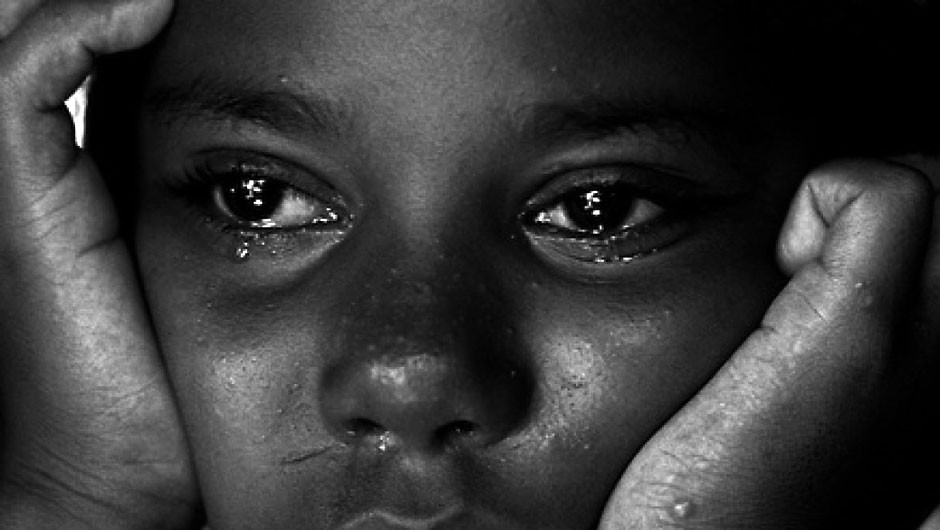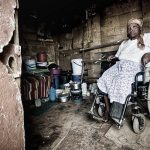At 12, Chiamaka Nnoli had a smaller stature than most kids her age. And it seemed she carried the weight of the troubles she faced in the one-room apartment she shared with her elder sister’s family – her husband and three kids.
Chiamaka was responsible for washing all the clothes, cleaning the house, running errands and cooking for the family. She was usually the first to wake up but the last to sleep. Most nights, neighbours caught her bent over buckets of water while sleeping.
There was no space for mistakes in Chiamaka’s young life – the price for that was usually a bruised back. Her sister would hit her with anything her hand could find – slippers, a bundle of broomsticks, and sometimes, a mortar pestle.
But that was not the life she was promised when her sister took her from the village away from her mum to live with her family in Benue State.
While Chiamka’s incident happened over 12 years ago, the issues persist. The Nigerian Police Force in Adamawa State on May 30, 2023, arrested Maryam Mohammed, a housewife who brutalised Angela David, a 7-year-old girl in her custody. She was said to have been angered by the victim’s inability to do some domestic chores.
Angela was said to have been rushed to a clinic after the incident. Results from a test on her showed her kidney was punctured and her liver inflamed with hepatitis.
A more extreme case was reported in May 2017. Oby, a businesswoman in Lagos, allegedly beat her 8-year-old employee to death because she did not follow instructions given to her.
These are only a few of such known cases. The unknown is more. Many underaged children in Nigeria are used as domestic help and are subjected to many forms of sexual, mental, emotional and physical.
What the law says
The Nigerian Labour Act 2004, as amended, classifies a child as a ‘young person’ under the age of 15. Also, section 28 of the Child’s Right Act adopted in Nigeria in 2003 prohibits the exploitative use of children for labour.
The law states that “no child shall be – (a) subjected to any forced or exploitative labour, (b) employed to work in any capacity except where he is employed to be by a member of his family on light work of an agricultural, horticultural, or domestic character, (c) required, in any case, to lift, carry or move anything so heavy as to be likely to adversely affect his physical, mental, spiritual, moral or social development; or (d) employed as a domestic help outside his own home or family environment.”
Section 11 of the act notes that no child should be subjected to physical, mental, or emotional injury, abuse, neglect, maltreatment, inhumane treatment, or punishment.
The law further states that any person who contravenes any provision of the law “commits an offense and is liable on conviction to fine not exceeding fifty thousand nairas or imprisonment for a term of five years or to both such fine and imprisonment.”
How do they get a hold of these children?
The International Labour Organisation or ILO says 15 millionchildren are engaged in child labour in Nigeria. Furthermore, in 2021, UNICEF reported that 11% of girls aged 5-17 are involved in child labour.
Most times, these children are sent by their poor parents or guardians to work as house helps so they can use their earnings to better the lives of their families. Other times, the children are lured with the promise of a better life and the commitment to enrol them in school, but instead, they are used as punching bags.
In cases where the children travel far distances to work as help, it is difficult for them to return home when they need help.
Even with existing numbers and laws that outrightly forbid harming children, child abuse cases keep recurring because arrest and prosecution of offenders hardly come by except when death is involved.
Doing better
While cases of child labour abuse continue to make waves, there is a need for the government to improve its enforcement mechanism and its ability for rehabilitation.
Currently, the National Agency for the Prohibition of Trafficking in Persons or NAPTIP owns temporary shelters across the country, with a limited stay window of six weeks. It also provides counselling and rehabilitation for rescued children. Victims requiring more extended periods of care are transferred to other non-governmental organisations. Unfortunately, this is not enough.
To eradicate the abuse of children, the government must ensure proper implementation of the Child Rights Act and violators made to face the law.
There is also a need to harmonise who is regarded as a child in Nigeria’s law. While the Child Rights Act sets the minimum employment age as 18, the Labour Act sets the minimum age as 12.
In rural areas, it is vital to regularly inform and remind parents of the physical, psychological, and sexual abuse their daughters experience at the hands of their employers.
They should also be made aware of the value of ensuring that their kids attend schools in their neighbourhoods since, as prepubescent and young adolescents, they depend on their parents for support, love, and direction during this vulnerable time.






